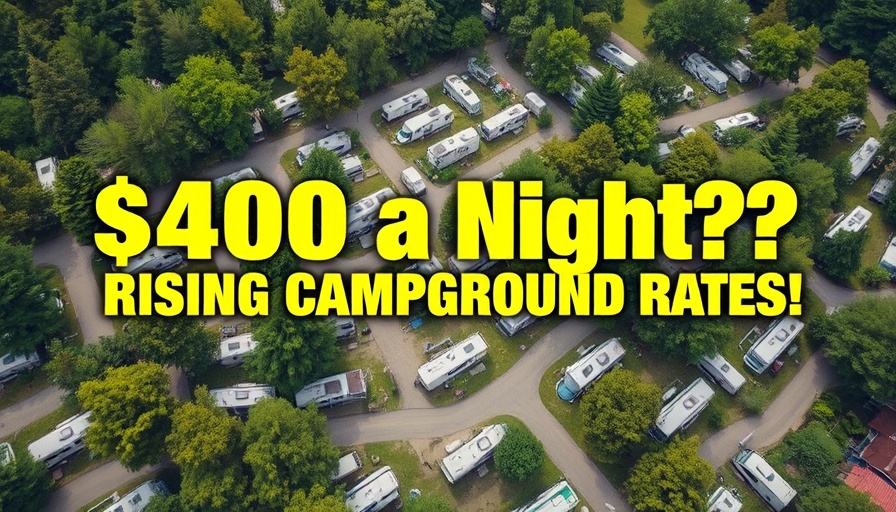
Rising Campground Costs: What Do RVers Really Think?
As we dive into the topic of rising campground rates, one can't help but ponder the evolving landscape of RV camping. In a recent episode of the RV podcast, the hosts, Mike and Jennifer, explored the eye-popping rates that some campgrounds are charging, highlighting how prices have escalated dramatically over the years. This upward trend is causing a stir among RV enthusiasts, many of whom are left questioning, just how much is too much to pay for a night under the stars?
In 'Rising Campground Rates; How Much is TOO MUCH?', the podcast delves into the financial strains facing RVers, urging us to consider broader societal impacts.
Understanding the Price Surge: Causes Behind Campground Inflation
Many campground owners argue that the surge in fees is not merely due to greed but rather a necessary response to increased operational costs. For RV parks, everything from rising property taxes and insurance premiums to wages for employees has only further escalated in recent years. Additionally, aging facilities require constant maintenance and improvements, with many campgrounds struggling to provide quality experiences despite the growing demand for spots. In essence, the landscape reflects the same inflationary pressures seen across various sectors in our economy.
The Real Cost of Campground Reservations: A User Perspective
Social media platforms have become a hotbed for RVers sharing their campground experiences, especially when it comes to pricing. A notable example emerged from the RV Lifestyle community, where many shared staggering quotes for nightly stays. One member reported prices of up to $400 a night as the norm in popular locations like the Newport Dunes RV Resort in California.
This dynamic pricing model is now being adopted by many campgrounds, reminiscent of the hotel industry. During high-demand periods, prices can soar, leaving campers feeling price-shocked, especially after learning they might have paid considerably less just a few years back. The shift in cost structures leaves travelers feeling priced out of their favorite spots, sparking debates about the fairness and sustainability of such rates.
Exploring Alternative Campground Options for Budget-Friendly Traveling
Fortunately, for those worried about costs, various alternatives to traditional campgrounds exist. Options such as boondocking—camping for free in off-grid locations—or utilizing services like RV Overnights, which connects travelers to private property hosts, are gaining traction among budget-conscious campers. These alternative methods not only offer cost savings but also unique experiences that help break away from crowded campgrounds.
According to Jennifer and Mike, they've found memorable stays at charming locations like a bison farm or a vineyard while using overnight services, underscoring that camping can offer more than just a place to rest—it's about connection and adventure.
The Community Impact of Rising Prices
The discussions surrounding campground prices serve as a catalyst for broader reflection on our communal experiences with outdoor recreation. For families, camping is not only a cherished tradition but part of a lifestyle choice that promotes adventure, togetherness, and a love for nature. As prices rise, it challenges the notion of who can afford to enjoy America’s outdoors.
Interestingly, some RVers have reported that in specific scenarios, staying in hotels can sometimes be cheaper than camping, leading to a potential shift in camping culture. With many feeling that the value they get for their camping dollar is decreasing, it's essential to find that right balance and explore different options to continue enjoying the great outdoors without breaking the bank.
Taking Action: Engage with the RV Community
In closing, understanding the dynamics of campground pricing is critical for RVers, not just for budgeting but also for planning future trips. As these discussions unfold within the RV community, it is important to engage in dialogue about experiences, share insights about campgrounds, and support each other in discovering alternatives. The more voices that participate in these discussions, the more robust and diverse the solutions that will emerge.
If you’re interested in the RV lifestyle, don't forget to check out other videos on the RV Lifestyle channel for more tips, tricks, and experiences from fellow campers.
 Add Row
Add Row  Add
Add 




Write A Comment